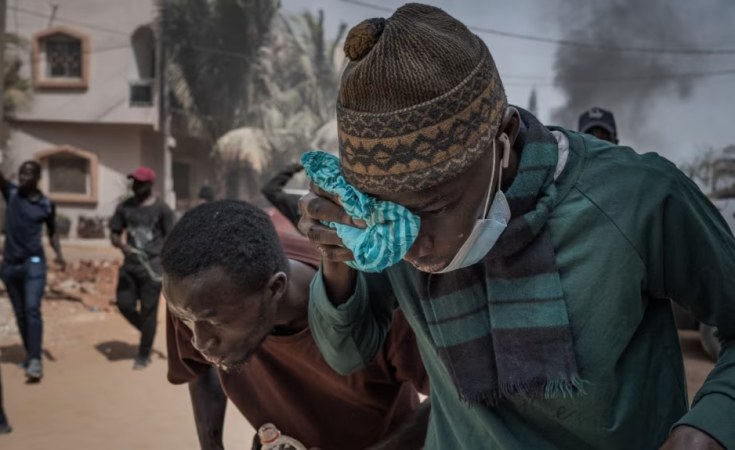Echoes of the past in Senegal as growing uncertainty over a potential third term for President Sall triggers protests and unrest.
Last week, protests erupted in Senegal following a court decision that found opposition leader Ousmane Sonko guilty of "corrupting youth." Sonko was sentenced to two years in prison, disqualifying a potent candidate from participating in next year's presidential elections. The unrest has led to a reported sixteen deaths, and the government has responded with arbitrary arrests and internet shutdowns.
The Sonko case raises difficult questions about the rule of law, judicial independence, and the relative power difference, influenced by class and gender, between the accused and his accuser. It is difficult to imagine any outside observer having sufficient information to form an ironclad opinion. But the protests that erupted after the verdict was announced were not just about that decision. They were also clearly fueled by long-simmering tensions centered on a belief that President Macky Sall is intolerant of serious challenges to his leadership and intends to run for a third term in office. It is far less difficult for friends of Senegal to take a position on the latter issue.
In 2012, Sall's triumph in Senegal's presidential contest was widely understood as a rebuke to his predecessor, Abdoulaye Wade. Wade had been a longtime opposition leader who finally came to power in 2000 and then proved reluctant to leave, attempting to extend his tenure to a third term only to be thwarted by Sall's victory. Wade had argued that because he was elected before the adoption of a new constitution that altered the length of presidential terms, his first term didn't count toward the two-term constitutional maximum. His machinations to stay in office so alarmed Senegalese civil society that a mass movement rose up to resist, most famously embodied by the diverse and youthful Y'en a Marre, or "fed up" campaign.
Ironically, today Sall makes much the same argument, asserting that the amendments to the constitution adopted by a 2016 referendum also reset the clock on his allowable total presidential terms. While he has not announced a third-term bid, he has declined to rule one out, even though polling consistently indicates that the Senegalese public supports the two term limit for their presidents. By keeping his options open, Sall fuels concerns among the population about the strength of their democracy.
The United States wants to celebrate Senegal as a vibrant, Muslim majority democracy in a tough neighborhood. The long list of Sall's political opponents who have been disqualified from challenging him due to judicial decisions has surely raised eyebrows, but Sall's continuing refusal to rule out a destabilizing third term should trigger real alarm. The State Department's statement expressing dismay at the violence in Senegal and calling on all parties to "voice their views in a peaceful manner" is unobjectionable. But if the Biden administration is serious about championing democracy, one hopes that officials at the highest levels are speaking plainly to Sall and those around him about the very present dangers of distorting Senegal's democracy to satisfy one man's ambition.


